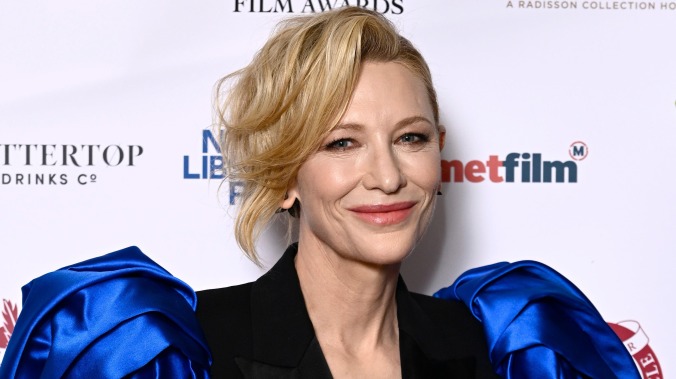Cate Blanchett tiptoes around queerbaiting discourse
Talking TÁR, Cate Blanchett is befuddled by the "obsession" with labeling sexuality that permeates film discourse

Queerbaiting is a term meant to be applied to fictional characters whose relationships are written as homoerotic without ever crossing the line to actually, actively gay (see: Dean and Castiel on Supernatural). However, the word is now being flung as an accusation towards real-life people who might appropriate the aesthetics of gay culture without labeling themselves as such (see: Harry Styles, Billie Eilish). Then there are actors who frequently play gay characters, like Cate Blanchett, who exist in an interesting gray area of discourse.
“I have to really listen very hard when people have an issue with it,” Blanchett admits to Vanity Fair about this particular subject. “I just don’t understand the language they’re speaking, and I need to understand it because you can’t dismiss the obsession with those labels—behind the obsession is something really important. But personally I’ve never had it.”

 Keep scrolling for more great stories from A.V. Club.
Keep scrolling for more great stories from A.V. Club.